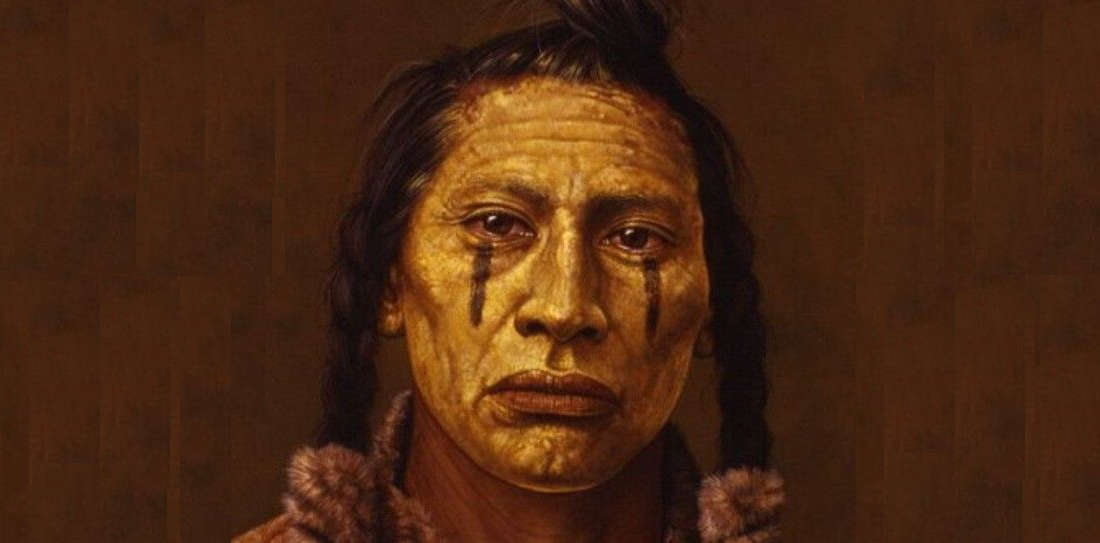Luther Standing Bear was a respected Oglala Lakota Chief who was one of the very few who occupied the rift between the Native’s way of life, and that of the European pioneers. Brought up in the traditions of his people until the age of 11, he was then given an education at the Carlisle Indian Industrial Boarding School of Pennsylvania, where he learned about the new settler’s way of life, and how to speak the English language.
Standing Bear’s native roots were deep, giving him in the unique position to be a conduit between both cultures. Even though he was seen as “accepting the white man’s way of life” by some, his enduring legacy was the protection of the way of life of his people.
25 Mind Blowing Psychology Quotes From Carl Jung
These things included: publishing 4 Books, becoming a leader at the forefront of the powerful movement geared towards preserving Native American heritage and sovereignty, and being known as a prominent voice in educating the new American to the Native American way of living.
These 10 quotes from the great Chief known as Standing Bear will be sure to disturb much of what you think you know about “modern” culture, and open your eyes to a new, yet old, way of living. Everything goes in circles…
1. Praise, flattery, exaggerated manners and fine, high-sounding words were no part of Lakota politeness. Excessive manners were put down as insincere, and the constant talker was considered rude and thoughtless. Conversation was never begun at once, or in a hurried manner.
2. Children were taught that true politeness was to be defined in actions rather than in words. They were never allowed to pass between the fire and the older person or a visitor, to speak while others were speaking, or to make fun of a crippled or disfigured person. If a child thoughtlessly tried to do so, a parent, in a quiet voice, immediately set him right.
3. Silence was meaningful with the Lakota, and his granting a space of silence before talking was done in the practice of true politeness and regardful of the rule that ‘thought comes before speech.’…and in the midst of sorrow, sickness, death or misfortune of any kind, and in the presence of the notable and great, silence was the mark of respect… strict observance of this tenet of good behavior was the reason, no doubt, for his being given the false characterization by the white man of being a stoic. He has been judged to be dumb, stupid, indifferent, and unfeeling.
Learn 25 life changing lessons from Khalil Gibran.
4. We did not think of the great open plains, the beautiful rolling hills, the winding streams with tangled growth, as ‘wild’. Only to the white man was nature a ‘wilderness’ and only to him was it ‘infested’ with ‘wild’ animals and ‘savage’ people. To us it was tame. Earth was bountiful and we were surrounded with the blessings of the Great Mystery.
5. With all creatures of the earth, sky and water was a real and active principle. In the animal and bird world there existed a brotherly feeling that kept the Lakota safe among them. And so close did some of the Lakotas come to their feathered and furred friends that in true brotherhood they spoke a common tongue.
6. This concept of life and its relations was humanizing and gave to the Lakota an abiding love. It filled his being with the joy and mystery of living; it gave him reverence for all life; it made a place for all things in the scheme of existence with equal importance to all.
7. It was good for the skin to touch the earth, and the old people liked to remove their moccasins and walk with bare feet on the sacred earth… the old Indian still sits upon the earth instead of propping himself up and away from its life giving forces. For him, to sit or lie upon the ground is to be able to think more deeply and to feel more keenly. He can see more clearly into the mysteries of life and come closer in kinship to other lives about him.
8. Everything was possessed of personality, only differing from us in form. Knowledge was inherent in all things. The world was a library and its books were the stones, leaves, grass, brooks, and the birds and animals that shared, alike with us, the storms and blessings of earth. We learned to do what only the student of nature learns, and that was to feel beauty. We never railed at the storms, the furious winds, and the biting frosts and snows. To do so intensified human futility, so whatever came we adjusted ourselves, by more effort and energy if necessary, but without complaint.
Learn 10 things about world’s most famous scientist Stephen Hawking.
9. …the old Lakota was wise. He knew that a man’s heart, away from nature, becomes hard; he knew that lack of respect for growing, living things soon led to lack of respect for humans, too. So he kept his children close to nature’s softening influence.
10. Civilization has been thrust upon me… and it has not added one whit to my love for truth, honesty, and generosity.
h/t Native Warriors || via: truth-code.com || photo credits: theunboundedspirit.com










The only TRUE Americans. It’s their country and our ancestors did their best to kill them all and take their land. All in the name of In God We Trust.
Everyone must read this!
It is time to reconnect with nature and our roots!
Beautiful…..
Such wise words from an amazing Human Being !
I have never understood why all these immigrants killed so many Indians and then advertise with them on great events like the Expo. That’s what the USA did in 1992 in Sevilla. Maybe the Americans nowadays realise how civilised they are. And very intelligent and wise. That’s what I hope, anyway….